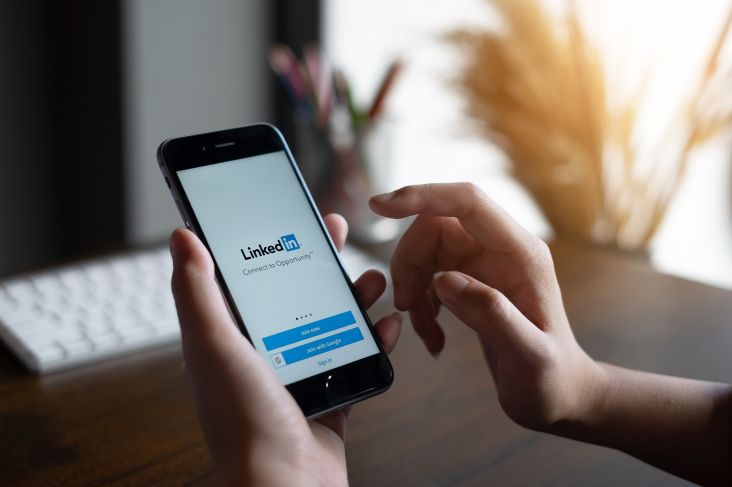How to tackle new clients during that initial meeting
When you first meet a prospective client, there are all sorts of things to bear in mind to seal the deal.

Image licensed via Adobe Stock
The people you'll be meeting will be 'checking' you out to see if you're right for the job. They'll have a list of questions, and they will almost be interviewing you to see if they like you and want to work with you.
You have to be confident, armed with the right social skills, and you also have to be aware of a few home truths. Some things might put you on the spot. I've put together the following tips to help you successfully tackle new clients during that initial meeting.
Scenario 1. The client wants to know your day rate
You've secured that first meeting, you've so far impressed the prospect client, and now they want to know how much you're going to cost. They'll most likely put you on the spot and ask for your day rate, there and then.
The Solution
Revealing your day rate during a face-to-face meeting can be tricky. It can put pressure on you and cause you to make a mistake, providing the wrong price for your services. To be prepared for this scenario, have two rates in mind. If you think the work or client is going to be tricky (i.e. lots of stress, time and effort) then supply your higher rate. If you have a good impression of the client and you think you'll get lots of great work out of them, provide the lower price.
When revealing your rate, be confident and speak up. It's business, and you have nothing to be ashamed of. Also, point out that your price isn't static and is subject to bi-annual reviews in future. And don't forget to mention if any VAT is on top of your rate.
Still unsure or uncomfortable with talking about money? Explain that you'll send a follow-up email after the meeting, providing your day rate and estimated costs. That way, you avoid being put on the spot.
Scenario 2. The client says they can hire cheaper elsewhere
Now that the client knows your day rate, they might raise their eyebrows, and mention how they know someone who can do it for much less. They'll suggest a figure and look at you expectantly.
The Solution
A prospect who pulls this trick is trying to get you to match his or her price. They probably don't know someone else who can provide the same services for less; they're just trying to get you to lower your rate. In this scenario, it becomes clear that the client doesn't respect your time and could become a nightmare to work with, always fighting you on price. In which case, explain how you would love to provide your services for less, but you can't achieve the same high-quality output – and this could potentially damage your reputation. Then kindly say how it's great they know someone who can meet their budget.
Scenario 3. The client has high expectations
If the meeting is still going well and you've got over the hurdle of revealing your day rate, a client might then ask what you can achieve in a certain number of days. They are happy to pay your day rate, but they want to know how much work they'll get out of you in one day.
The Solution
Dealing with high expectations can be tricky, but this is the perfect opportunity to be open, honest and upfront about how you work. You must explain that it can be challenging to predict how much you will achieve in one day. You must tell the prospective client that you sell your skills and expertise through time and that certain things cannot be made without an adequate budget. For example, if the client wants you to create a new website in less than two days, you have to explain why that's impossible. Don't be afraid to stand your ground, respect yourself and your work, and reiterate why you are worth your day rate.
Scenario 4. The client wants to know who you work for
Now that you've established your day rate and the time required to get the job done if a client is still interested they'll want to know that you've worked in similar industries to their business. They'll want to hear client names and examples of success elsewhere.
The Solution
Be prepared for this challenging question by knowing your existing clients inside-out and adapting your answer to suit the prospect. For example, if a consumer business approaches you, they'll want to see that you've got other consumer clients. Or it could be that you've worked in a particular industry like healthcare and that will help seal the deal.
It's also a good idea to have a case study in mind, i.e. an example of a successful project that's relevant to the potential client. Case studies allow you to demonstrate where you have added value, so speak up and sell yourself to win the client over.
Scenario 5. The client thinks they know better
Call it pride, call it a sense of control but some clients like to think they know best. They'll talk at length about a specific subject that they don't know anything about, probably to stop you from pulling the wool over their eyes.
The Solution
It's a quite common behaviour of new clients. They want to ensure you don't rip them off or take advantage of their lack of knowledge. In which case, listen to the client and stroke their ego by allowing them to talk things out. Once they're happy, they've got their points across, add your insights and expertise to prove that you know what you're talking about. For example, the client might not know much about social media and pretend they do – in which case, be humble, be polite and add gentle points, so you don't leave the client feeling stupid.
Scenario 6. The client wants to get started immediately
Now that the client is yours – they'll want to get started as soon as possible. They'll want to know when you can begin the work. But with existing clients to contend with, you're not sure when you can schedule things.
The Solution
Be honest with the client and explain how you'll have to check your current work schedule. Explain that you have existing clients with existing commitments, but you'll do your best to get started immediately.
With new clients, it's probably a good idea to request a deposit upfront before work begins. It's a great way to lessen the risk until you know whether the client pays you on time, or pays you at all.
More importantly, it's best to say that you've enjoyed meeting them, you'll go back to your office, and you'll put everything official in writing, i.e. the agreed day rate, timescales, budget and the required upfront deposit. That way, the client gets everything written in confirmation, and you can always refer back to things in future, should you run into any misunderstandings or issues.




 by Tüpokompanii](https://www.creativeboom.com/upload/articles/58/58684538770fb5b428dc1882f7a732f153500153_732.jpg)


 using <a href="https://www.ohnotype.co/fonts/obviously" target="_blank">Obviously</a> by Oh No Type Co., Art Director, Brand & Creative—Spotify](https://www.creativeboom.com/upload/articles/6e/6ed31eddc26fa563f213fc76d6993dab9231ffe4_732.jpg)
















